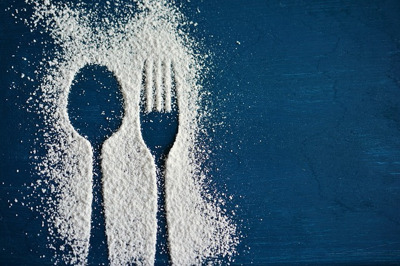
Things to think about
- Some days it may seem like children are eating a lot, and on other days they may hardly seem to eat anything. However, if they are growing and thriving, there is generally no need to worry. There are factsheets with lots of tips at https://www.nhsfife.org/services/all-services/nutrition-and-clinical-dietetics/infant-children-young-people/
- Childhood obesity is currently a major concern. Many children and young people eat and drink too much high-calorie food and drink, and don't do enough physical exercise.
- As well as the impact on physical health, being overweight or obese may have an impact on a child or young person's emotional wellbeing. In Fife, support is available through NHS Fife's Child Healthy Weight Service (Fife Loves Life).
- It is normal to occasionally use food as a reward or to help you feel better. However, if this is happening regularly or is the only method a child or young person uses to improve their mood, this may become a problem.
- If you're concerned that a child or young person is overweight, obese or emotionally overeating please contact your health visitor, school nurse or GP.
Remember that a change in a child or young person's pattern of eating is likely to be a passing phase.
However, in a minority of cases the pattern may persist and start to become harmful. It is important to help these children and young people as early as possible.
Warning signs of Binge Eating Disorder or Bulimia
Binge Eating Disorder
This is when someone regularly eats a large amount of food in one go (a binge), then feels regret or guilt about it. Often this happens in private due to feelings of embarrassment.
The NHS website outlines some warning signs that might indicate that someone has Binge Eating Disorder:
- eating a lot of food, very fast
- trying to hide how much is being eaten
- storing up supplies of food.
More information at: www.beateatingdisorders.org.uk/types/binge-eating-disorder.
Bulimia
This is when someone regularly binges and then tries to compensate for the food they have eaten (through vomiting, using laxatives, excessive exercise) so they don't put any weight on.
The NHS website outlines some warning signs that might indicate that someone has Bulimia:
- eating a lot of food, very fast
- going to the bathroom a lot after eating, often returning looking flushed
- excessively or obsessively exercising.
More information at: www.beateatingdisorders.org.uk/types/bulimia.
More signs to be aware of, in an educational setting, are outlined by Beat at:
www.beateatingdisorders.org.uk/get-information-and-support/support-someone-else/worried-about-a-pupil/.
Who to contact if you are concerned that a child or young person may have Binge Eating Disorder or Bulimia
If you are a parent or carer, please contact your GP.
If you are a professional:
- To consult with the Primary Mental Health Workers for advice about a child or young person in Fife, please phone 01334 696019 or email fife.camhs-pmhw@nhs.scot
- To refer to Fife CAMHS, please go to www.nhsfife.org/camhs-referral
Supporting someone with an eating disorder
CARED Scotland is for parents and carers of young people (aged up to 25) in Scotland who have recently received a diagnosis of an eating disorder, and are about to start or have just started treatment: www.caredscotland.co.uk



